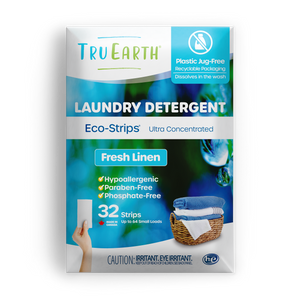Traveling is a great way to explore new places and cultures, but it can also have an impact on the environment. There are simple steps we can take to be more eco-friendly while on the go and make sure that our beloved destinations are preserved for generations to come.
By making small changes in our habits, we can reduce our carbon footprint while we travel – helping protect the planet and its precious resources in the process.

Go for Reusable Containers
If you're someone who is concerned about the impact of plastic waste on our planet, then you'll be pleased to know that there are plenty of steps you can take to reduce your environmental footprint while traveling. One of the easiest ways to do so is by always bringing a small reusable bag with you so that you can avoid accepting plastic bags from stores.
This may seem like a small step, but over time it can make a huge difference in reducing the amount of plastic waste that ends up in our landfills and oceans. And when it comes to buying souvenirs, trying to avoid any plastic wrappers is another great way to cut down on waste.
Bringing your own reusable water bottle is another excellent way to reduce plastic waste. And if you're traveling to a destination where you can't drink the tap water, there are still plenty of options for staying hydrated without relying on disposable plastic bottles. Many hotels, restaurants, and airports now have water refill stations where you can easily refill your bottle with clean, filtered water.
Not only will you be reducing waste, but you'll also be saving money by not having to constantly purchase plastic bottles of water. In addition to these simple steps, there are plenty of other ways you can make your travels more sustainable, from using public transportation to opting for eco-friendly accommodations.
Opt for Zero Waste Alternatives for Your Toiletries
Reducing waste with our toiletries is easy and beneficial for both the environment and our wallets. One of the best ways to do so is by purchasing travel-sized bottles and refilling them with our favorite liquids and beauty products like shampoo, shower gel, facewash, sunscreen and skincare products every time we travel.
This not only saves us money but also reduces plastic waste. Another sustainable option is to switch to solid bars like soap, shampoo, deodorant, toothpaste tabs, and more. These bars are spill-proof, multifunctional, and do not need any plastic packaging. Additionally, they last longer, use natural ingredients, and are easy to get through airport security.
 We should also consider using biodegradable and non-toxic options when it comes to personal hygiene, such as bamboo toothbrushes and cutlery instead of plastic ones which can take hundreds of years to decompose. Another excellent alternative is switching to an all-metal, no-plastic safety razor and recycling the stainless-steel blades.
We should also consider using biodegradable and non-toxic options when it comes to personal hygiene, such as bamboo toothbrushes and cutlery instead of plastic ones which can take hundreds of years to decompose. Another excellent alternative is switching to an all-metal, no-plastic safety razor and recycling the stainless-steel blades.
And let's not forget, avoiding disposable products like q-tips, tissues, disposable razors, face wipes, and cotton pads can significantly reduce our ecological footprint. Making these simple changes can have a big impact on our planet, so let's do our part and make a positive difference.
Try Paperless Traveling
If you're looking for an eco-friendly and hassle-free way to travel, going paperless is the way to go! With smartphones being an integral part of our lives, there's no reason not to save your travel documents and e-tickets on your device.
From flights to buses, and even concerts and theater shows, e-tickets have become widely accepted, making paper waste unnecessary.
Choose Walking, Cycling and Public Transportation First
When it comes to reducing your carbon footprint while traveling, walking or cycling is undoubtedly the best option. Not only is it great for the environment, but it also benefits your health. However, we understand that walking or cycling may not always be practical or possible.
Factors like long distances, unfavorable weather conditions, or inconvenient routes can make it challenging to choose these modes of transportation. In such cases, taking public transport is the next best option. Not only does it allow you to save money and avoid the stress of driving in an unfamiliar city, but it is also an eco-friendlier choice than driving your own car or hailing a taxi.
 In addition, many cities around the world have invested in sustainable public transport options, such as electric buses, trams, and trains that run on renewable energy. These modes of transportation emit far less pollution and greenhouse gasses than traditional diesel or gasoline-powered vehicles, making them an increasingly eco-friendly choice.
In addition, many cities around the world have invested in sustainable public transport options, such as electric buses, trams, and trains that run on renewable energy. These modes of transportation emit far less pollution and greenhouse gasses than traditional diesel or gasoline-powered vehicles, making them an increasingly eco-friendly choice.
In conclusion, while walking or cycling is the best way to reduce your carbon footprint, public transport is a practical and sustainable alternative that helps you explore a city at a leisurely pace while keeping the environment in mind.
Shop Ethically and Locally
If you're traveling and in the mood for a little shopping, it's essential to consider the impact of your purchases on the planet. Supporting ethical and sustainable stores can make a significant difference.
Always steer clear of fast fashion, which exploits labor and produces mass amounts of waste, and, instead, opt for local businesses that champion eco-friendly practices. Seek out stores that offer locally-made products and prioritize reusable bags and items that reduce plastic waste. Not only will your support help the community, but it can also contribute to a healthier planet.
By choosing sustainable and ethical options, you'll be playing your part in creating a more sustainable future for all.
Ready To Travel Safely?
In conclusion, reducing waste while traveling is not only beneficial for the environment but also for yourself and future generations. By adopting simple habits such as carrying a reusable water bottle, bringing your own shopping bag or utensils, and opting for eco-friendly accommodation, you can significantly reduce your carbon footprint and contribute to a cleaner planet.

Let us do our part in preserving the earth for ourselves and future generations by adopting these sustainable habits in our daily lives.


